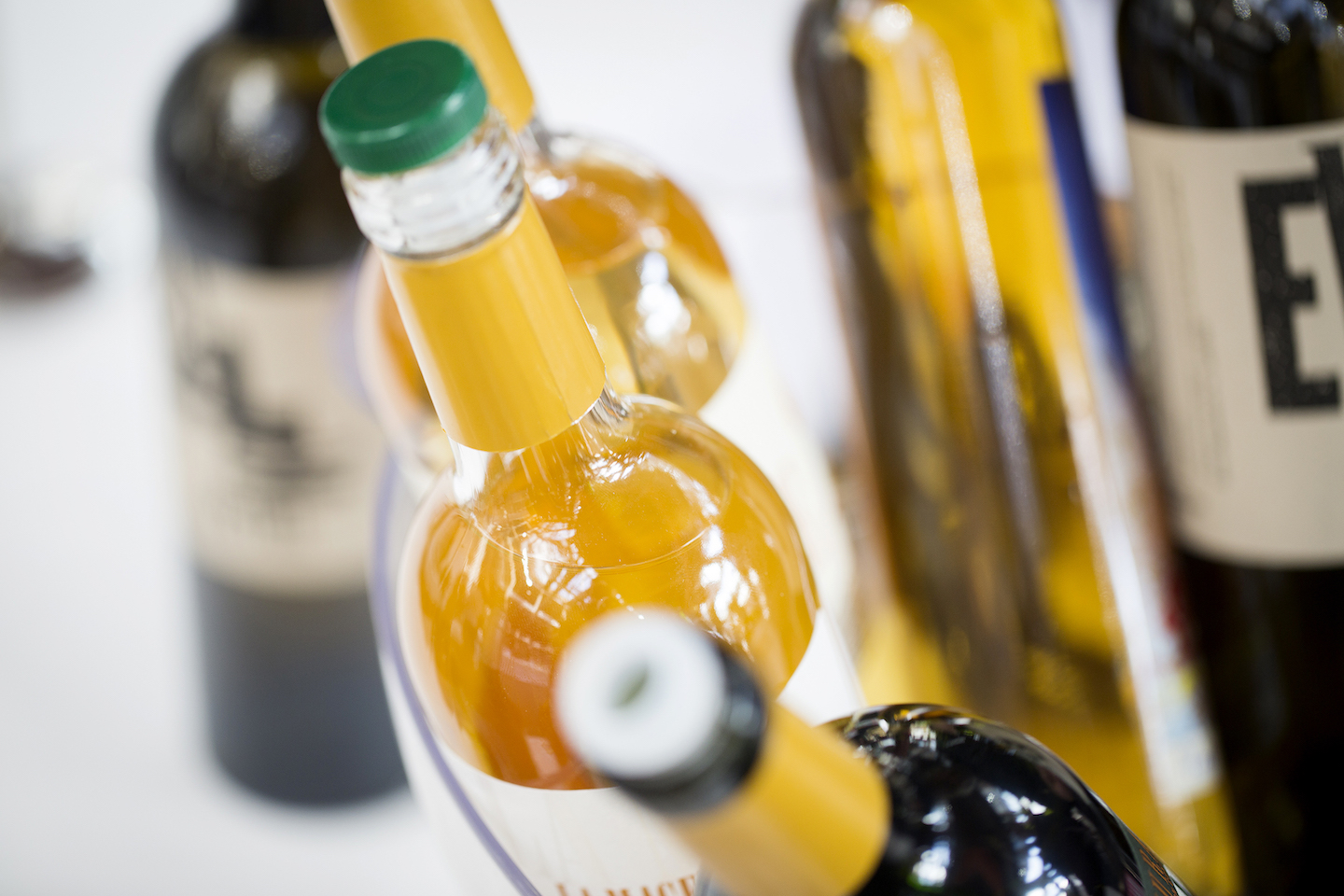
The other day I was hosting a masterclass on orange wines and opted to commence proceedings with my favourite Niels Bohr quote to the effect that “If quantum mechanics hasn’t profoundly shocked you, you haven’t understood it yet.” So too with orange and natural wines. If they don’t physically realign the molecular structure of your palate, they should make you think about wine in different way, provoking you to challenge long-cherished wine assumptions.
As I was uttering the words, many thoughts were churning through my mind, ranging from images from my recent trip to Georgia, to the contents of an article that had come out in The Guardian that very day on the history of natural wine. Something to the effect that you may understand something better if you retain an open mind and a sense of wonder, an approach that poets might term as “feeling on the pulses”. By losing our sense of shock, awe and wonder, we distance ourselves from our sublime feelings, we dilute enjoyment, and we put criticism above craftsmanship.
They should make you think about wine in different way, provoking you to challenge long-cherished wine assumptions.
Natural wine means different things to different people. As it should. For some it’s all about the wine, what’s in the glass being the precursor to delicious enjoyment. For others, it is a sociable activity, migrating from fair to fair to catch up with friends and drinking in the atmosphere every bit as much as the wine. For others still there is a political dimension – for growers to assert their freedom by working outside appellation rules (for example), and for others who go further and would create their own manifestos and structured definitions of naturalness to work towards. The debate leads to discussions about what connotes wine culture (or counter-culture) and what the emergence of a natural wine movement (if it is a movement) says about our changing tastes and habits.
Conversely, when I travel to Georgia I am affected by the deeply-rooted wine culture that exists there. Although I didn’t sup wine on my last visit from a corn horn or a clay bowl, I had a sufficiently immersive experience to suspend the kind of over-critical judgement that tends to warp enjoyment. By constantly focusing on what should be good, what may be correct and what is commercially acceptable, we tend to ignore the cultural significance and symbolism of wine. Put a classic wine in a jug and place it on a table and it becomes just wine. Objectify wine, and it is transformed into a product to be stripped down to its component parts and analysed to the nth degree.
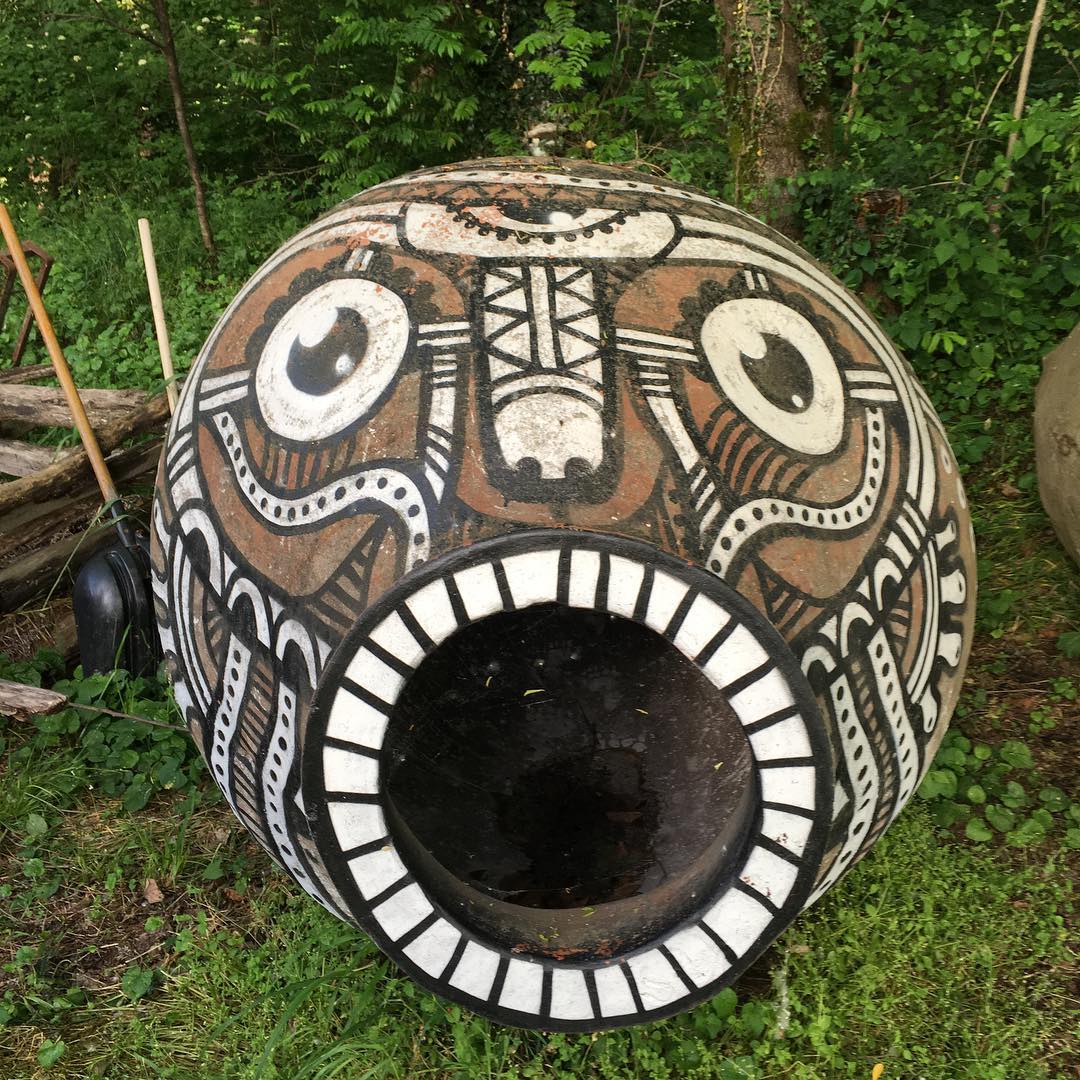
In Georgia wine is part of the holy trinity of hospitality, the other two elements being food and friendship (often expressed in toasts and prayers). Wine comes from the ground literally; it issues from the buried qvevri with all the pregnant symbolism that that suggests. Wine is a gift to be shared. It is written into the very blood-history of Georgia. It has a powerful social function. And it is always on the table. How simple – and natural – is that?
That ole nat wine argument
Then I cast my mind back to the tasting masterclass in 2011 at Vagabond cited by Stephen Buranyi in his article. This event was called forth by the leading sommeliers in the UK to account for a phenomenon that was just beginning to seep into the public consciousness. In short, it was to be an interrogation of an idea, rather than celebration of a new and alternative style of wine. People were suspicious of the “other” as if some fully-formed trendy movement (sporting the latest in the emperor’s new clothes) had sprung from the collective imaginations of a few wine importers. I read numerous negative newspaper pieces about natural wines, and a roster of critics and journalists (and some growers) lined up to excoriate both the wines and the people behind them. Everything was lumped into a single countercultural clod, be it a juicy cold-carbonic zero-sulphur Gamay or an extended skin-maceration wine, as if a whole wine spectrum might be distilled down to an argumentative opposition – clean versus faulty; good versus bad. And in our Manichean wine universe we love a reductive argument even more than a reductive wine! Georgia is a long way away when you are bogged down in swapping opinions about chemical correctness in wine.
By losing our sense of shock, awe and wonder, we distance ourselves from our sublime feelings, we dilute enjoyment, and we put criticism above craftsmanship.
The difficulty in arguing against an idea such as a natural wine is that you invariably become entangled in a rage of contradictions. The first is to state categorically that there can be no such thing as natural wines, and then, in the same breath, damn the wines for existing. The second is to lazily caricature the wines as if there was only one style of wine, whilst condemning them at the same time for exhibiting a variety of faults. Moreover, to caricature the people involved, when these real wines made by real farmers and growers and drunk by real people. And to assert that natural wine is merely a trend and that this too shall pass. Whereas a trend is, by definition, ephemeral and rootless, natural wine is nothing if not a truly organic phenomenon – with more and more people making, buying, selling and drinking naturally-made wines every year. To damn it for existing you must damn the artisans themselves, wine merchants, some journalists and even the public itself for participating in a kind of grand collective fraud. Some commentators do exactly that. Accusing people of being fundamentalists because they like to drink and promote a certain kind of wine, is a kind of fundamentalism.
Another means of trying to discredit the increasing popularity of the wines is a quasi-analytical one – to call on science itself as a witness for the prosecution of the argument, and to state unequivocally that the wines cannot be any good because of the very way they are made (even though, per se, natural winemaking methods are never uniform). When we are speaking about a wide spectrum of wines made in a variety of styles by a variety of methods, resorting to airy generalisation flies in the face of scientific methodology. The wine is… the way it looks, smells and tastes in the glass. Perhaps the most dishonest approach is to taste the wines with the pretence of objectivity when all you are doing is looking for the opportunity to ascribe faults to the self-same wines. It has been said a lot recently that we are living in a post-truth world, where it is more important to protect an entrenched argumentative position for the sake of it, than to acknowledge actual evidence. This is a world where people have ceased asking questions because they feel they have nothing left to learn and feel most perfectly assured in their private sense of taste.
How do you know antiquity was foolish? How do you know the present is wise? Who made it foolish? Who made it wise?
Wine is – or rather, can be – a natural product. It seems right that wine comes from grapes from vines which are cultivated in a natural environment as opposed to one in which chemical treatments are the order of the day. Organic and biodynamic farming are a long way off the kind of invasive chemical spraying that not only damages biodiversity, but fundamentally alters the relationship between the vine and its surroundings. The choice is simple – either the vineyards are farmed with respect for (and in respect to) nature, or the process is simply about maximising yields of grapes at all costs to produce juice in order to make large quantities of wine. If there is no life in the soil, there can be no life in the wine – nothing may come of nothing after all – but when the purpose of these wines is to be consistent and mediocre, then what is added to the wine in the winery becomes far more important than what the vines take from the vineyard.
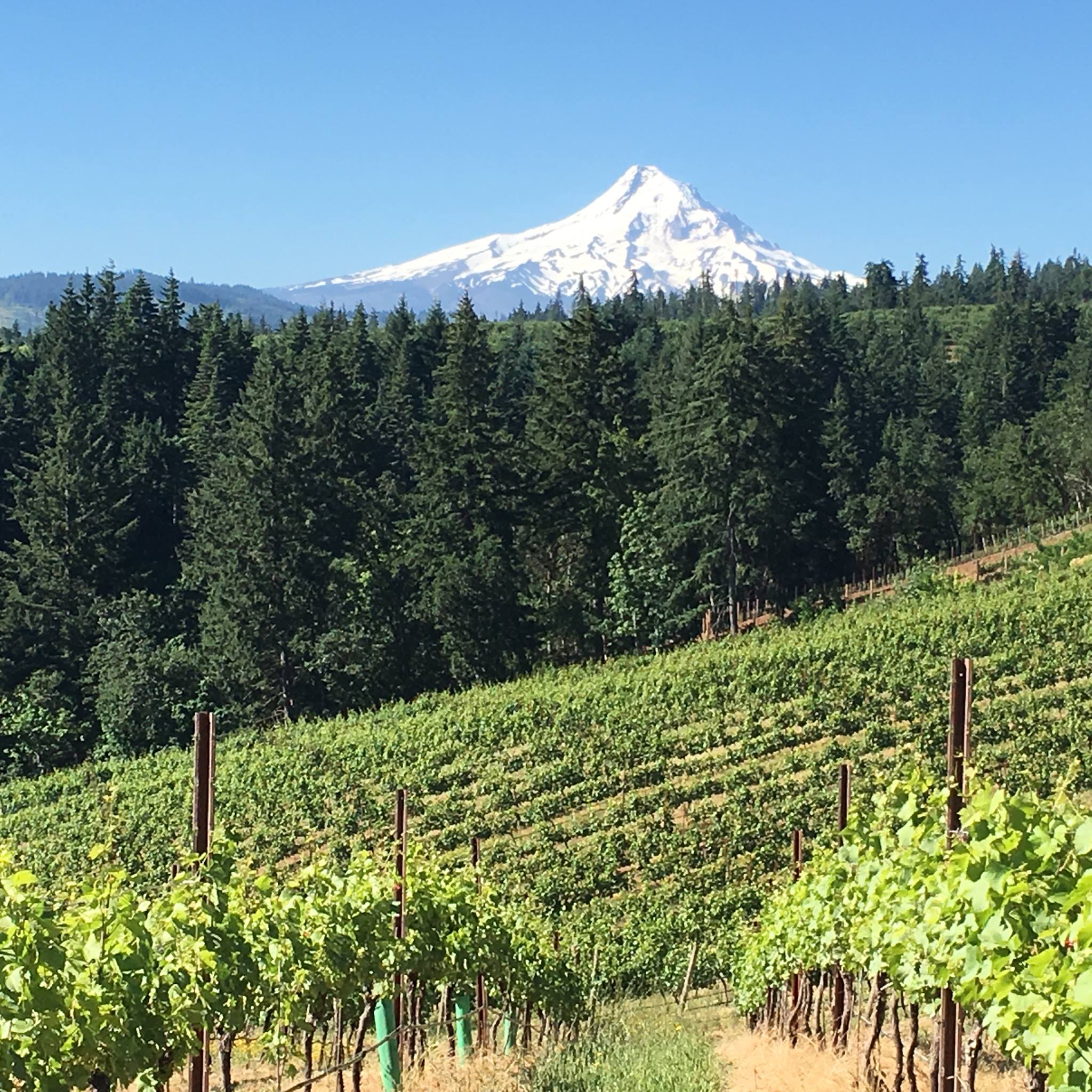
The arguments in favour of sustainable organic and biodynamic farming are straightforward enough. The first is moral: we simply don’t need to create environmental deserts and monocultures, because, ultimately, we don’t need mediocre wine. Good wine may indeed be a pleasure and even a nourishment, but to despoil the land, to pollute the soil and to abuse water – which is a vanishing resource in certain parts of the world – simply in order to create an alcoholic beverage, is a luxury that we can easily live without. The second point concerns quality. Vineyards that are farmed organically produce stronger and more efficient vines, wherein the energy of the vine goes into producing healthy bunches of grapes. This is not to say that the final wine will be better – that is another story, but the greater natural part of winemaking is the quality of vine-farming that goes on in the vineyard.
Winemaking itself is complex. Many dozens of decisions – and revisions – can be made to adjust and alter the process. Philosophically, one begins with the simple choice of whether to make the wine from scratch into a “cleansed” product with a consistent profile, or instead to accompany the wine on the transformative journey. The first approach views the grape juice as the mere wherewithal to mould into a preconceived product, whether it is a denatured, chemically-assisted wine to hit a very specific price point, or one of sufficient quality that it can take on layers and layers of other flavours. This kind of winemaking revolves around manufacturing something which is functional and able to withstand critical scrutiny and the judgement of tasting panels. The natural vigneron has a wholly different view – if the wine is functional then it is about freshness and drinkability, or the function may be to express as truthfully as possible the nature of the vintage and the particularity of the terroir. “We farm the land, we harvest the grapes by hand, we ferment them naturally and then bottle them with a touch of sulphur,” said a natural vigneron.
Good wine may indeed be a pleasure and even a nourishment, but to despoil the land, to pollute the soil and to abuse water in order to create an alcoholic beverage, is a luxury that we can easily live without.
When I started presenting wines in this idiom for the first time I urged people to be curious, to taste outside their comfort zone (in other words, not to apply rigid classical aesthetic standards) and endeavour to understand what the vigneron was doing/or not doing – and why. Debates are sterile if one side assumes that all the wines are a priori faulty, simply because they are made without the safety net of additives; they stall also when the same person states unequivocally that certain aromas and flavours are inherently faulty – and that those faults are absolute.
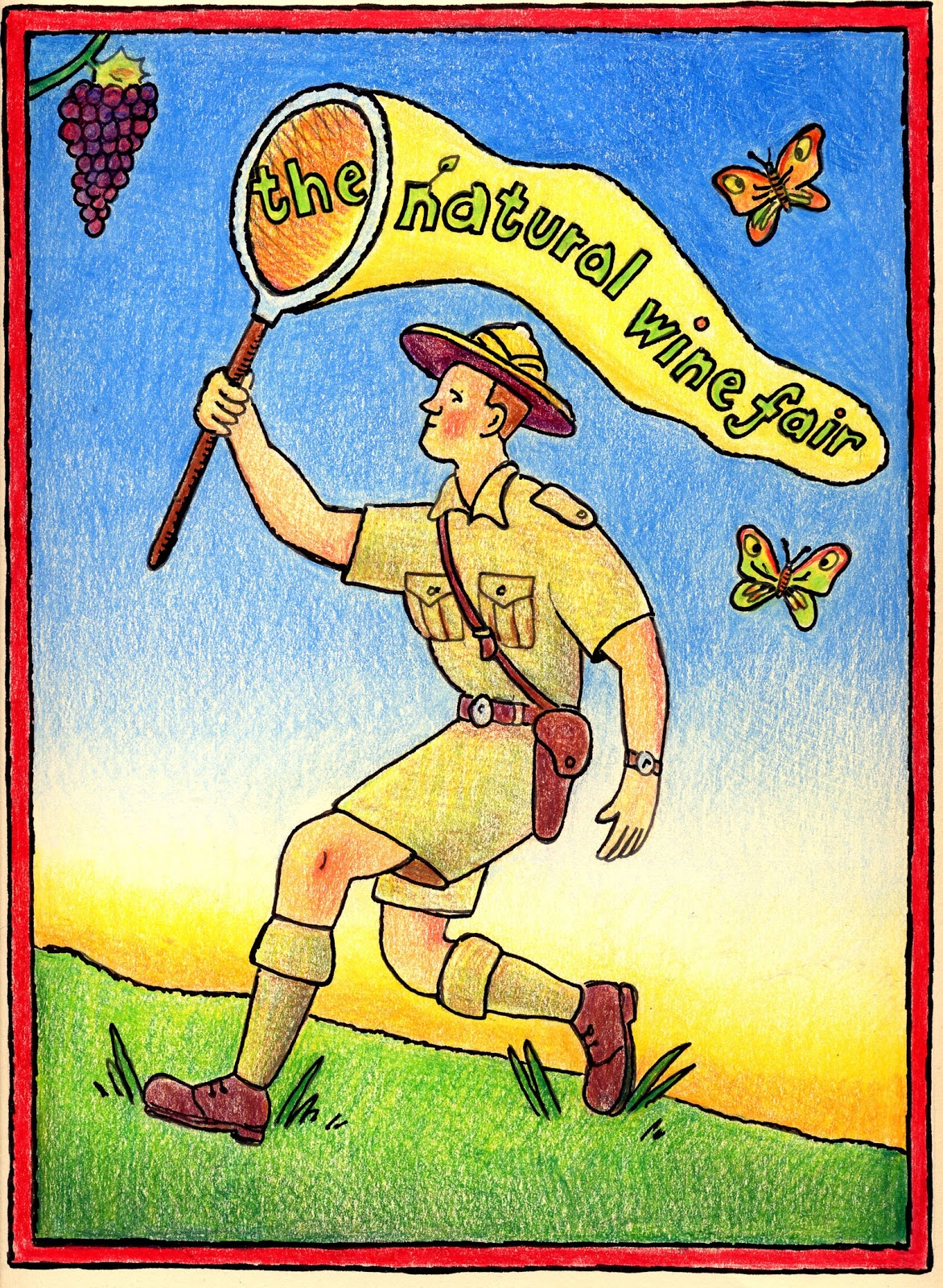
The Natural Wine Fair, a growers’ event that preceded Real Wine Fair and RAW, prompted some prickly discussions about the technical correctness of the wines being exhibited. It is interesting to revisit the debates of those times, if only to see how far things have progressed. No doubt, winemaking has improved also; if you are making wine sans safety-net, you need to be extra vigilant and work with superb grapes, have a clean cellar and make the appropriate “physical” interventions to ensure healthy fermentations and trouble-free maturation.
Back to basics
It sounds childishly simple to say this, but the wines that have always interested us were the result of people farming grapes in the best way possible and not putting stuff into the wine. In other words, not denaturing what nature gives. The argument against natural wine has always centred around the idea that no wine could ever be natural. Wine, after all, is the net result of myriad choices and actions, be they intellectual or instinctual, chemical or physical, and thus the wine is born through a succession of transformations into a single articulation. These approaches though are very different – one seeks to achieve a specific outcome and to deny other potentially undesirable outcomes, one seeks the simplest transformation without a range of controls. The critic or consumer acceptance panellist can then come along and declare that the natural wine is a misfit, in that does not conform to some arbitrary manifesto of correctness or good taste. If you examine the history of art, music or poetry you will find so many examples of craftsmen whose work was rejected by their peers at the time, and yet now are considered to have pushed the boundaries of their particular art form. Winemaking may be a science, but it is also much more than that.
Rising above issues such as how much VA is too much (one of the themes of the Vagabond masterclass tasting), it is salutary to return to the roots (literally and metaphorically) of wine in whichever place we happen to be. The roots of wine draw nourishment from the macro and the micro: from the geography, the geology, from the climate and the soils, from the social and family history of a place, from local farming practices and traditions, from the yeasts, from the individuals who farms the grapes and make the wines. When you visit a region and meet growers you begin to glimpse the subtle connections, the complex circuitry of causal factors which dynamises the people, the wines and winemaking.
If you examine the history of art, music or poetry you will find so many examples of craftsmen whose work was rejected by their peers at the time, and yet now are considered to have pushed the boundaries of their particular art form. Winemaking may be a science, but it is also much more than that.
Often when we speak of natural wine we speak of a specific methodology (to sulphur or not to sulphur, that is (not) the question), when we should be focusing on these deeper origins. What matters more than the commercial imperatives of the wider wine industry is sustainability, that the land should be nurtured and respected and the environment cherished. The human involvement here is stewardship. Farming is a rhythmic and vital interaction, yet when discussing wine – all wine, not just natural wine- we rarely mention this activity. Wine has a fundamental relationship with the place and the community of people that live there. Destroy that and you have an isolated organism.
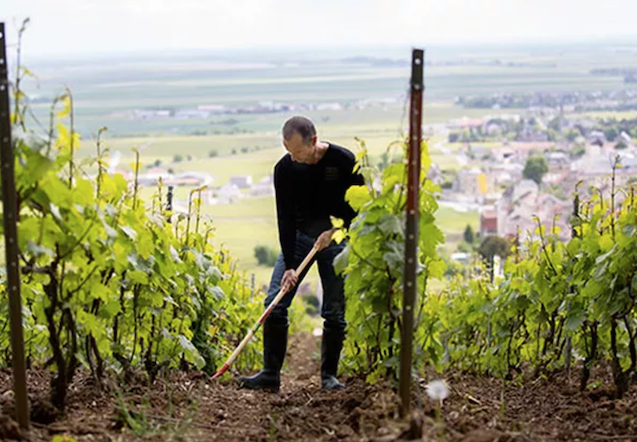
What is this sense of place? When we invoke the “T-word”, it is to suggest that a wine is more than just the sum of its objective chemical and microbiological parts. I have spent time in vineyards that were throbbing with life, where there was something palpable above and below, seemingly radiating what one can only describe as a healthy energy. How do you measure something that is intangible, a latent force that elicits imaginative and emotional responses? Can you taste this “energy”? In a personal way, yes, because it is transformed (somehow) into aromas, flavours and feelings (sensations). Many vignerons would be the soft interpreters of their vineyards and try to guide the wine to the bottle in such a way that the unique code of soil, geography, natural energy reaches the drinker. The decoding of the wine, of course, depends on how responsive that person is. The responsiveness depends on who the person is.
A Brief History of Natural Wine – again
Back to The Guardian’s long read, a well-researched and well-written article, which created a compelling natural wine narrative and referenced some of the key players who themselves influenced a generation of moving-and-shaking vignerons in the Loire, Jura, Beaujolais and elsewhere. In any reading of history there are headline moments, but to understand how movements come into being and progress you also need to identify and describe the catalysts, the myriad individual journeys, the wine tastings and events, even the social forces at work, in order to fully comprehend that natural wine is a complex weave comprising many strands.
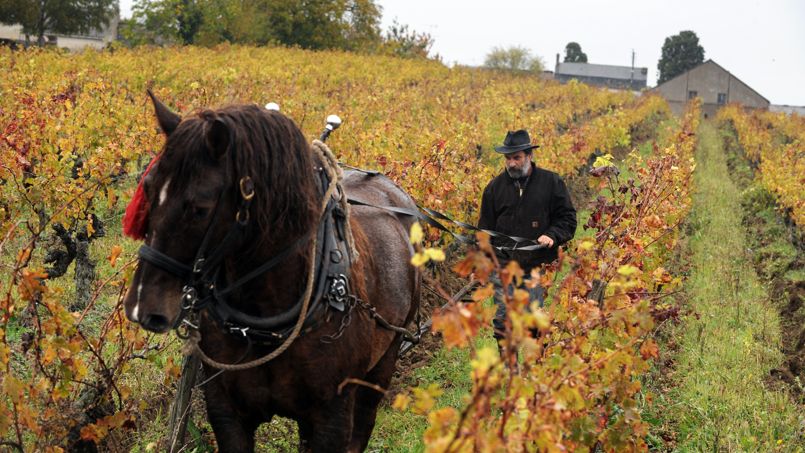
For me it was reading Alice Feiring’s early books, drinking a half-crazed Olivier Cousin wine in a Parisian natural wine bar in 2005 (such things are epiphanies made of), my own personal tastes changing as I sought intrigue, challenge and purity in the wines that I was drinking, the feeling that I wanted to demythologise wine and make it less stuffy for others, just loving the vibes in Terroirs, Brawn and associated wine bars, and, above all, meeting the most generous and genuine people – all these impulses and incidents and relationships have been my education and (re)invigorated my love of wine.
There’s more to wine than is dreamt of in your philosophy, Horatio
A glass of wine contains more than the crushed grapes of a single vintage. That statement might be interpreted in two ways. Firstly, that a glass of wine may be the aggregate of lots of interventions, many of them chemical in nature. The other interpretation is that the glass of wine has the capacity to connect us to special places and finer feelings, especially if that wine shimmers with a beautiful natural nourishing energy.
All these impulses and incidents and relationships have been my education and (re)invigorated my love of wine.
Since wine became a commodity it acquired a token value; standards were set up; quality had to be codified and constantly assessed, bodies were instituted to monitor this, experts nominated to sit on these bodies, and so on. Politics invaded the world of wine, and with politics came the bureaucracy that loves to colonise our lives and assume control over our language. When you call something a product, you make a big production about it. So, wine gradually changed from a drink that farmers made for their families and friends, into a product manufactured and sold by companies, something that had to be consistent in taste and clean by analysis.
Bluntly speaking, we live in an age of limits, boundaries defined by groups of people not wanting others to achieve anything. Nothing is allowed to step outside the norms, definitions of possibility set as an act of self-definition by these groups themselves.
Natural wine respects the artisan ethos which is that wine is about farming and individual choice and the freedom of self-expression. Every corner of the globe we live in is packed with tales, a world of proliferating narratives, all equally of respect. Unification under one banner, or creating hierarchies, is not the natural wine way. The natural way is to celebrate the diversity of cultures and their different stories, the diversity of weather conditions and places, the diversity of human beings.

